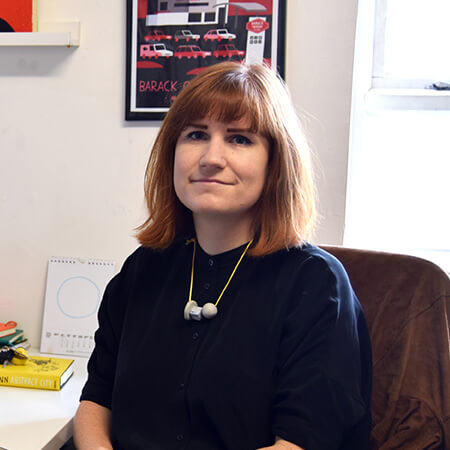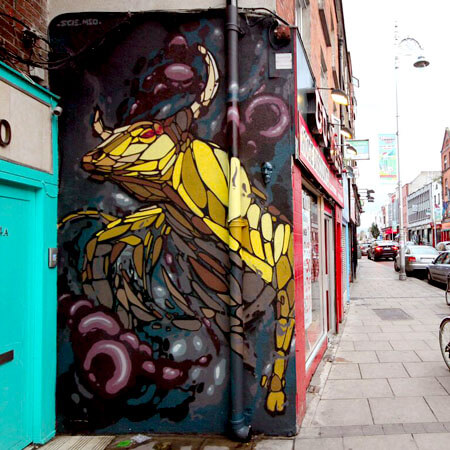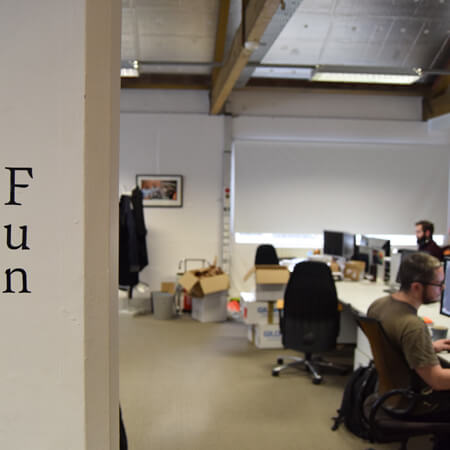I didn’t really like school that much. I’m dyslexic and I couldn’t handle it. I hated even reading at the time.
I left school when I was 16 and got into a trade in air conditioning and refrigeration. I bought my first house when I was 19, my second when I was 22, my third when I was about 24. I rented out the houses and was involved in different businesses, investing money as well as working in refrigeration. In my early 20s, I had nice cars, everything was going great, I travelled all over the world and had a ball!
I realised I liked the hustle and bustle behind the camera. It was being creative but it was still business, and I like dealing with people
In 2007, I bought a house just before the crash. Over a period of about 3 to 5 years, I saw the decline of the businesses. I moved to Dublin and ended up losing my job. I lost the houses one by one, and then the businesses started closing. The recession crashed everything. I lost my job and didn’t know what to do with myself. I had money all the time and I didn’t know the value of it, ever. Looking back, the wipe out from the recession is the best thing that ever happened to me. It took me out of a place where I had become very complacent. Luckily I didn’t have to go bankrupt, and was able to walk away from everything.

South, produced by Bankhouse Productions
I got into acting and was cast in a movie. On set, I realised I liked the hustle and bustle behind the camera. It was being creative but it was still business, and I like dealing with people. I got cast in a feature film and it was low budget. The producer and director parted ways and nothing was happening. I wanted the movie to get finished because I was an actor and I wanted to get out there. I got a book on what a producer does. I read it and finished producing the movie myself. The movie went into distribution and that was the first movie that I produced.
At that time I was on the dole and had no money whatsoever. I worked as an intern for free in a production company, producing about three movies with them but they weren’t in a position to take me on. It’s a hard industry for people to take on full time. I see that much more now than I did a few years ago.
Unemployment was out of my comfort zone compared to where I had been previously. I ended up going to the unemployment centre for a week long positivity course. On the last day, Shane, this guy from the Inner City Enterprise (ICE) came in. He talked about how they help people get businesses started. At the end of it, I told him I wanted to be a producer and start my own production company. He didn’t look at me like I had ten heads.
It’s just about asking for help. That is the first thing. Just say ‘I want a bit of help’ or ‘can you help me out here?’
I lived in Thomas Street with a friend of mine and the building is called Bankhouse. Every day she was like, ‘You have to come up with a name’. I saw the plaque on the house and I really loved it. A lot of people said to me, don’t call it that, because of the word ‘bank’. I ended up doing it, I liked the name and it served me well. In August 2014, I started Bankhouse Productions. Fast forward two years, and I won ‘Most Innovative Business’, produced a nationwide cinema release, South, which won ‘Best Feature’ in two festivals. It was directed by Gerard Walsh and has now been to festivals all over the world.
Following Bankhouse’s success, it was the first time I ever spoke out publicly about being at the bottom of the barrel, and losing everything. A lot of my friends didn’t even know. I wasn’t ashamed, I just couldn’t deal with it. I thought it was a brilliant opportunity to say, look we’ve won this award and we’ve done well. It was time to be, just honest.




